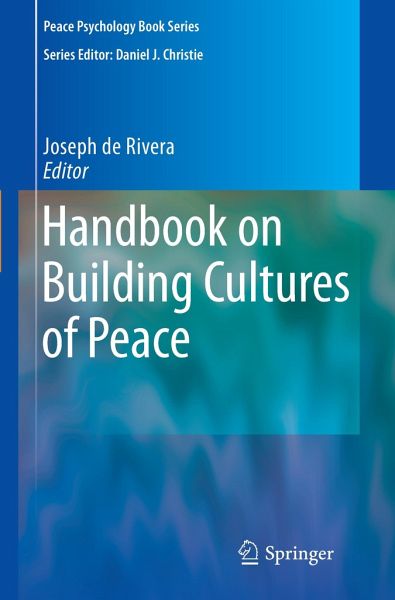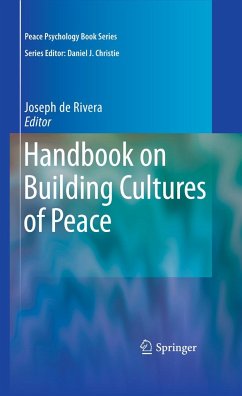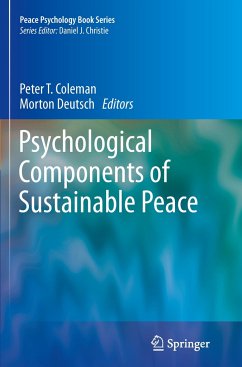
Handbook on Building Cultures of Peace

PAYBACK Punkte
76 °P sammeln!
Mediation and negotiation, personal transformation, non-violent struggle in the community and the world: these behaviors - and their underlying values - underpin the United Nations' definition of a culture of peace, and are crucial to the creation of such a culture. The Handbook on Building Cultures of Peace addresses this complex and daunting task by presenting an accessible blueprint for this development. Its perspectives are international and interdisciplinary, involving the developing as well as the developed world, with illustrations of states and citizens using peace-based values to crea...
Mediation and negotiation, personal transformation, non-violent struggle in the community and the world: these behaviors - and their underlying values - underpin the United Nations' definition of a culture of peace, and are crucial to the creation of such a culture. The Handbook on Building Cultures of Peace addresses this complex and daunting task by presenting an accessible blueprint for this development. Its perspectives are international and interdisciplinary, involving the developing as well as the developed world, with illustrations of states and citizens using peace-based values to create progress on the individual, community, national, and global levels. The result is both realistic and visionary, a prescription for a secure future.














